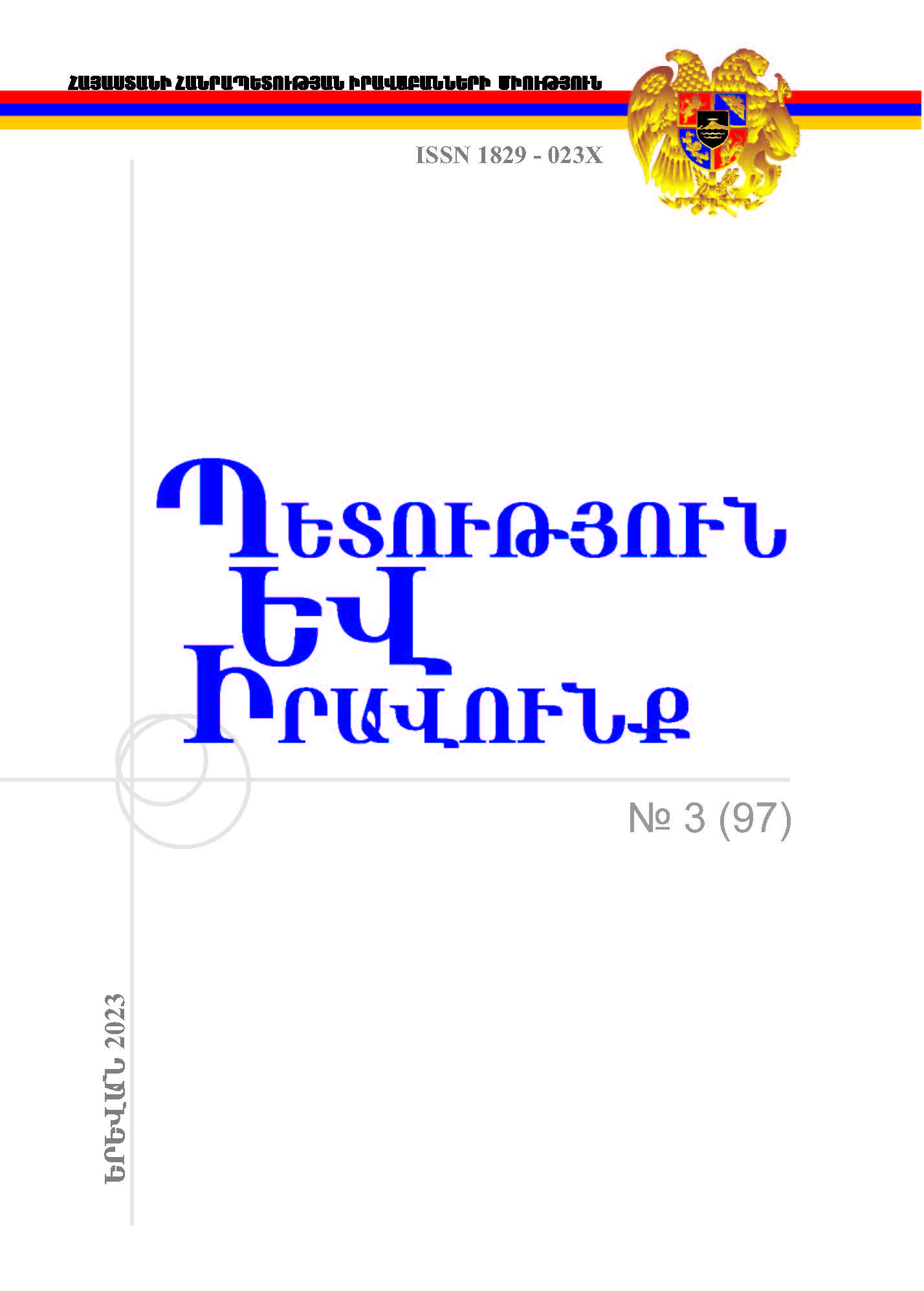NATIONAL MONITORING MECHANISMS: STRENGTHENING THE ACTION AGAINST TRAFFICKING IN HUMAN BEINGS
DOI:
https://doi.org/10.46991/SL/2023.97.176Keywords:
human trafficking and exploitation, action against human trafficking, victim of human trafficking, national monitoring, independent monitoring, GRETA, cooperation, civil society, international standards, NHRIAbstract
Action against human trafficking needs a diverse and multilayer approach. It should include not only criminal justice response to the offence of trafficking in human beings and its forms but also protection, assistance and other essential rights of victims. For this purpose, states are anticipated to establish necessary institutions and mechanisms, which should ensure a human rights-based approach to the victims of the trafficking in human beings.
In the architecture of action against trafficking in human beings, independent monitoring has a key role. It contributes to prevention, intervention, policy development, international collaboration, and overall improvement in the protection of human rights in the field. Those mechanisms have a significant role in supporting the policymakers and governmental institutions to develop and implement strategic documents, contributing to the identification of cases of human trafficking and communicating them with law enforcement, and collaborating and exchanging information with international organisations, particularly monitoring mechanisms. Furthermore, it can potentially serve as a bridge between civil society and the state, highlighting the role of civil society in supporting victims. Lastly, the national monitoring mechanisms in action against the trafficking in human beings can also be engaged in raising awareness among the general public, presenting the issue in an accessible manner.
The current article seeks to reveal why is it important to have national monitoring mechanisms for action against the trafficking in human beings, its mandate and different models, the synergy of the operation of national and international monitoring mechanisms of the field, cooperation with stakeholders, as well as the international standards and best practices based on the country-specific examples.
Downloads
Published
Issue
Section
License
Copyright (c) 2024 State and Law

This work is licensed under a Creative Commons Attribution-NonCommercial 4.0 International License.

